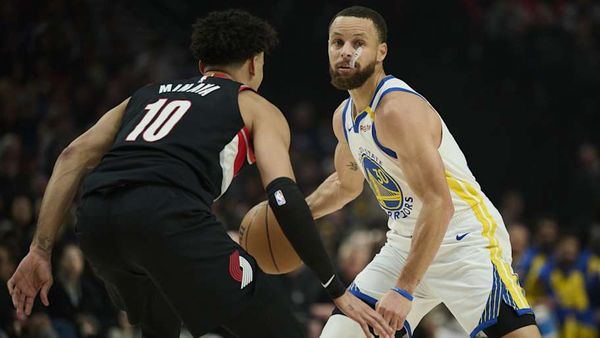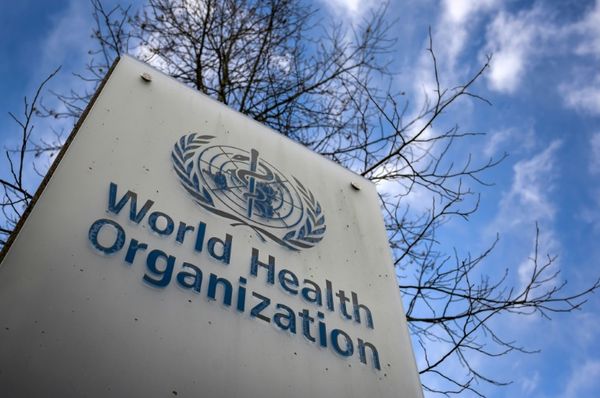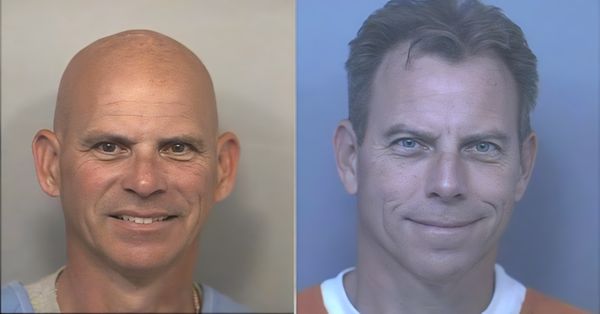A young woman who died last year after receiving a COVID vaccine will be "immortalised" through an arts fellowship in her name, as her family calls for a royal commission into the vaccine rollout.
Katie Lees was a 34-year-old actor and comedian, due to start a performance at Sydney's Flight Path Theatre after last year's strict winter lockdown lifted.
Less than two weeks after Katie had her first dose of the AstraZeneca vaccine in late July, she died from blood clots and a low platelet count, known as thrombosis with thrombocytopenia syndrome (TTS).
Katie's father, Ian Lees, who remains firmly pro-vaccination, described his daughter as selfless and passionate about the arts sector.
He said she was desperate to get it moving again after crippling restrictions.
Fellowship winners honour Katie
Two young women have been awarded fellowships at Sydney's Flight Path Theatre, supported by the donations of Katie's friends and family and the Inner West Council.
Co-recipient of the Katie Lees Fellowship, actor Megan Bennetts, said she applied after seeing that it was named for Katie.
"Katie was brave, she was creative, she took risks and it made me want to do that in a way I hadn't done before — that's what pushed me to apply," she said.
Bennetts shares the fellowship with Anna Clark, who submitted an original idea for a stage show in her application.
"After reading about Katie, she sounded like she might enjoy my show," she said.
"Having her friends and family choose your work is such an honour."
Being part of the fellowship is helping the Lees family too, as they try to move through their grieving process.
"We will never forget how she died, but we can't stay there," Mr Lees said.
"I don't want to be 75, standing on the side of the road with cardboard saying, 'AstraZeneca killed my daughter'.
Low vaccine supply
In July 2021, weeks before Katie's death, the Delta strain of COVID-19 was spreading and millions of Australians were in lockdown.
AstraZeneca was not recommended to people under the age of 60 but the preferred vaccine, Pfizer, was in short supply and only available to people aged between 40 and 60.
On July 21, in a televised press conference, then-prime minister Scott Morrison said he was sorry for the challenges in the vaccine rollout and publicly pressed the Australian Technical Advisory Group on Immunisation (ATAGI) to change their advice so more adults could access AstraZeneca.
Although not recommended by ATAGI, adults could get an AstraZeneca vaccine after conducting their own risk assessment and consulting with their doctor.
Katie spoke with her GP and got her first dose on July 22.
On August 5, the day after she died, the Therapeutic Goods Administration confirmed her death was a result of the AstraZeneca vaccine.
Royal commission would help country grieve
Mr Lees has renewed his call for an investigation into the vaccine rollout so the country can move forward from the pandemic and learn from what happened.
"This is not a political witch-hunt," he said.
"I don't think as a society we've been able to fully grieve this whole thing, and what we all went through.
In April 2022, a Senate review chaired by Senator Katy Gallagher — now the Finance Minister — recommended the government hold a royal commission into the pandemic response.
A review into current vaccine stocks and available treatments has begun, but the federal government has remained non-committal on a time frame for a major retrospective investigation.
However, Health Minister Mark Butler has said some kind of investigation into the pandemic response will happen.
"It would be unthinkable for there not to be a royal commission or some other similar very deep inquiry into the COVID-19 response," he said.
"The immediate priority is safely getting through this winter with the twin challenges of COVID-19 and influenza."
Mr Butler said an investigation would look at expenditure of money, dislocation of people and "the mental and physical distress that is going to last for years to come".
"Once we start to reach a phase in the pandemic where it is appropriate to look back, we will have those discussions with the states and territories about the sort of royal commission or deep inquiry that's required."
The minister's office was asked by ABC NewsRadio whether the inquiry would include investigating the vaccine rollout, but an on-the-record response was not provided in time for publication.
Katie's father, Ian Lees, would prefer the government hold a royal commission but the minister did not confirm what form an inquiry would take.
"A royal commission compels witnesses. A purely medical or scientific inquiry won't look at the whole of society," Mr Lees said.
"I'll be content when I actually see it happening."







